Tatyana Itova
University Ruse Angel Kanchev, Bulgaria
Abstract Title: Depressive Disorders During Pregnancy and Newborn
Biography: Dr. Tatyana Itova is a pediatrician and neonatologist with clinical and academic qualifications obtained from the Medical University of Varna, Bulgaria. She holds a PhD in Pediatrics from the Medical University of Pleven. Dr. Itova currently heads the Department of Neonatology at Medical Ruse University Hospital and teaches at Angel Kanchev University of Ruse. Her professional and research interests include the monitoring of high-risk newborns, early neurodevelopment, neuromonitoring, assessment of neurocognitive progress, and ultrasound imaging of the central nervous system.
Research Interest: Depressive disorders during pregnancy affect approximately 10–20% of expectant mothers and constitute a significant risk factor for both maternal well-being and fetal development. Untreated antenatal depression is associated with adverse outcomes including preterm birth, low birth weight, impaired placental perfusion, increased risk of suicidal ideation or behavior, and impaired maternal-infant bonding postpartum. Conversely, pharmacologic treatment—particularly with antipsychotics and antidepressants (notably selective serotonin reuptake inhibitors, SSRIs)—may result in adverse drug-related neonatal effects. Psychotropic medications readily cross the placental barrier and may induce neonatal adaptation syndrome (NAS), clinically presenting with respiratory depression, muscular hypertonia, tremors, lethargy, feeding intolerance, and neonatal jaundice. These symptoms are frequently indistinguishable from neonatal withdrawal syndrome and typically emerge within 48 to 72 hours postpartum. The severity of clinical manifestations correlates with the type, dosage, and combination of psychotropic agents administered during gestation. Combination therapy with both antipsychotics and SSRIs is associated with more pronounced neonatal complications, including the need for supplemental oxygen, parenteral nutrition, and in some cases, pharmacologic intervention with phenobarbital. While intrauterine exposure to psychotropic medications does not invariably result in long-term developmental impairment, close monitoring of neurodevelopmental milestones is warranted. Clinical decisions regarding pharmacotherapy during pregnancy must be individualized, based on a thorough risk-benefit assessment that weighs the teratogenic and neonatal risks of pharmacologic exposure against the potential consequences of untreated maternal psychiatric illness.

